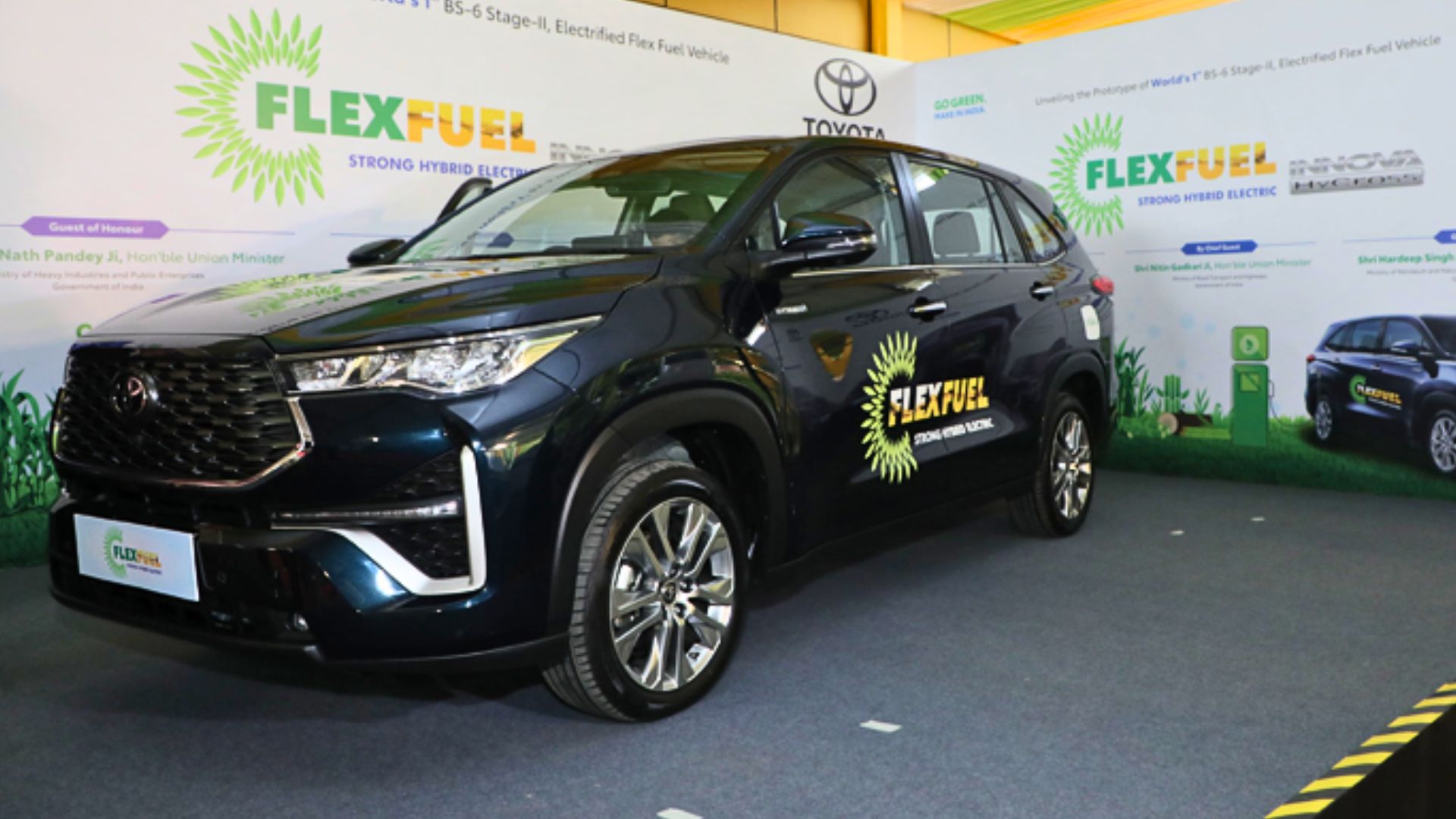Toyota Kirloskar Motor (TKM) continues to pioneer green technologies and alternative energy solutions, paving the way for a sustainable future. In alignment with its global commitment to sustainability, As one of the world’s leading automobile manufacturers, Toyota has consistently championed initiatives that contribute to environmental sustainability. TKM’s efforts are guided by the Toyota Environmental Challenges 2050 (TEC 2050), which outlines a strategic roadmap to drastically reduce carbon emissions across all operations. This year, on World Biofuel Day, TKM reiterated its focus on advancing cleaner mobility solutions through a holistic approach, considering the current energy mix, infrastructure readiness, and unique consumer needs.
Toyota Kirloskar Motor (TKM) marked ‘World Biofuel Day 2024’ by reinforcing its dedication to promoting clean and green vehicle mobility. The goal is to achieve carbon neutrality by 2050 and net zero carbon in manufacturing operations by 2035.
The Importance of Biofuels in India’s Energy Landscape
India, as the fastest-growing large economy, faces rising fossil fuel consumption and increasing imports. In April 2024 alone, India imported 21.4 million tonnes of crude oil, making it the world’s third-largest energy consumer. The transport sector, accounting for about 50% of oil demand, significantly contributes to this consumption and the associated carbon emissions. To combat these challenges, a swift transition to cleaner energy technologies, such as electrification and biofuels, is essential.
Biofuels, particularly ethanol, play a crucial role in this transition, offering an economically attractive and sustainable alternative to fossil fuels. India’s abundant renewable resources, including surplus sugar, food grains, and biomass, present a significant opportunity to produce ethanol and reduce the country’s dependence on imported fossil fuels. Ethanol production not only supports energy security but also promotes economic growth by generating new jobs and increasing farmer incomes.
Progress and Potential of Ethanol in India
India has made significant strides in ethanol blending, with ethanol blending in petrol reaching 15.90% in June 2024. The country is on track to achieve 20% blending by 2025, which could substitute 86 million barrels of gasoline and result in foreign exchange savings of over Rs. 30,000 crores. This shift is expected to reduce carbon emissions by more than 20 million metric tonnes and decrease PM2.5 emissions by up to 14%.
The introduction of Flex Fuel Vehicle (FFV) technology, which allows vehicles to operate on higher ethanol blends, represents the next step in India’s biofuel revolution. Although FFVs face challenges related to lower fuel efficiency due to ethanol’s lower energy density, the integration of electric powertrains in Electrified Flex Fuel Vehicles (FFV-SHEVs) offers a solution by enhancing fuel efficiency and reducing overall emissions.
Toyota’s Role in Advancing Biofuel Technology
Toyota has been at the forefront of electrified vehicle technology, and Toyota Kirloskar Motor continues to lead in promoting biofuel-driven mobility. Last year, TKM unveiled the world’s first BS6 Stage II Electrified Flex Fuel Vehicle prototype, demonstrating its commitment to advancing green vehicle technology. This innovation, which combines a flex fuel engine with an electric powertrain, offers the lowest well-to-wheel carbon emissions and exemplifies Toyota’s approach to sustainable mobility.
Mr. Vikram Gulati, the Country Head and Executive Vice President of Corporate Affairs and Governance at Toyota Kirloskar Motor, highlighted the crucial role biofuels could play in strengthening India’s energy security and achieving environmental sustainability. He remarked that biofuels, particularly ethanol, have the power to lessen the nation’s reliance on fossil fuels while delivering significant economic and environmental advantages. By harnessing ethanol, a locally-sourced and renewable energy resource, India can make substantial progress toward its energy security objectives. Moreover, ethanol’s ability to drastically cut fossil fuel consumption and lower carbon emissions aligns with the country’s mission of reaching carbon neutrality.
Toyota Kirloskar Motor’s Participation in Biofuel Initiatives
To further emphasize the importance of a multi-faceted approach to achieving carbon neutrality, Toyota Kirloskar Motor participated in the SIAM International Conference on World Biofuel Day. The conference, themed “The Biofuel Revolution in India: Fuelling Tomorrow,” featured discussions on biofuel demand and supply management, the auto industry’s preparation for a biofuel future, and the development of a robust ecosystem for biofuel adoption. The event brought together government officials, industry leaders, and global experts to share insights and strategies for promoting biofuel as a sustainable energy source.
Conclusion
As Toyota Kirloskar Motor continues to drive innovations in green mobility, its commitment to a cleaner, greener future remains steadfast. By promoting a holistic approach that includes biofuels, electrification, and advanced vehicle technologies, TKM is playing a crucial role in India’s journey toward sustainable energy and carbon neutrality. Through these efforts, Toyota Kirloskar Motor is not only contributing to environmental conservation but also ensuring that the benefits of clean mobility are accessible to all.

